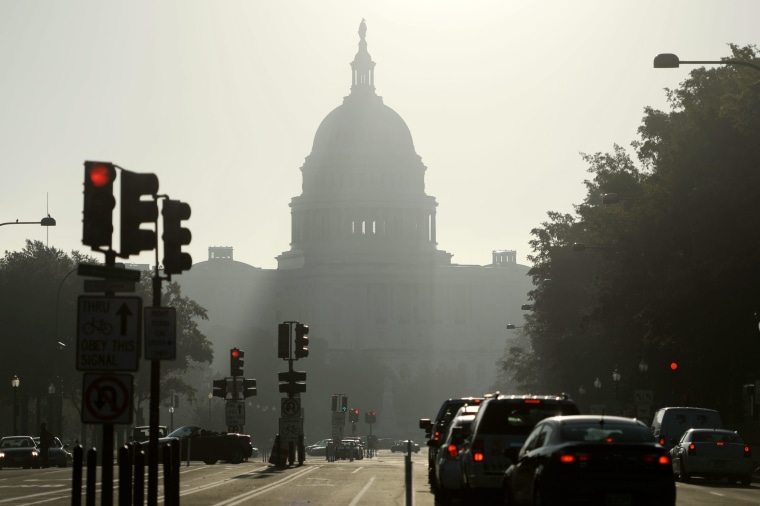As Congress reconvenes, it will have only a few weeks to negotiate an agreement to raise the debt ceiling. Economists say the almost-inevitable showdown, even if it doesn’t lead to a default, could have real-world economic repercussions.
“The debt ceiling is a politically created barrier,” said Harry Holzer, a professor of public policy at Georgetown University. “It would very much be a man-made crisis if we don’t raise it, and it would be a terrible way to induce fiscal discipline. It would be very costly.”
While many people have the impression that it authorizes new government spending, raising the debt ceiling actually pays for bills that are already due.
“We already spent the money. Now, all we’re doing is simply paying for it,” said Mark Zandi, chief economist at Moody’s Analytics.
The debt ceiling is the maximum amount of Treasury debt that can be outstanding, he explained. Since the United States is currently running a deficit, with higher expenses paid out than revenue coming in, the Treasury needs to issue additional debt to pay everyone from Social Security recipients to government contractors to foreign bondholders. The Treasury Department actually hit its limit earlier this year, and has been engaging in “extraordinary measures” since the spring — but those options will be exhausted in about a month.
"This is all just political maneuvering. It’s not that they can’t come up with the money."
“At the end of the day, this is all just political maneuvering. It’s not that they can’t come up with the money,” said Wayne Kaufman, chief market analyst at Phoenix Financial Services. “You’ve got politicians looking to make a point, playing a game of chicken.”
But that posturing could be costly.
Fancy Footwork Required
Some fiscal hawks have suggested that the Treasury Department prioritize payments on Treasury bonds and leave other bills unpaid — a move the Treasury has rejected as being both financially and logistically impossible, not to mention politically unpalatable if Social Security payments fail to go out at the beginning of October.
Economists say that even if bondholders were spared the financial fallout, failing to make good on other payments could lead to a widespread loss of confidence. The credit agencies would still punish the United States even if the Treasury avoided a technical default by keeping money flowing to bondholders only, Kaufman said. “I don’t think they’re going to be fooled. It’s tantamount to a default if you’re not able to pay your bills. To me, that’s just a little bit of sleight-of-hand,” he said.
The bond market, especially short-term Treasuries, could take a hit if investors get skittish. “Uncertainty is never good for the market,” said Lindsey Piegza, chief economist at Stifel Fixed Income. “I think you could also see additional pressure on the dollar.”
Avoiding a Credit Rating Downgrade
When politicians can’t avoid the temptation to use the debt ceiling as a political football, ultimately, taxpayers wind up footing the bill. Even if a default has never happened, the brinkmanship could lead to a downgrade in the nation’s credit rating, as it did in 2011, when credit ratings agency Standard & Poor’s downgraded the United States’ debt. And even the hint of a default could weaken demand for government debt.
Both of these possibilities could make it more expensive to borrow in the future, exacerbating the nation’s budget gap.
“If nothing else, it would create more budget pressure in the future because just servicing the debt we have, interest rates would be higher,” Holzer said.
“The reason it’s such a powerful tool is defaulting on the debt would be a very stupid and irresponsible thing to do and everybody knows it,” said Alice Rivlin, a senior fellow at the Brookings Institution. “Threatening to do that gives you a certain amount of power.”
